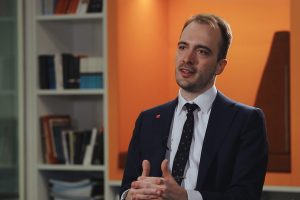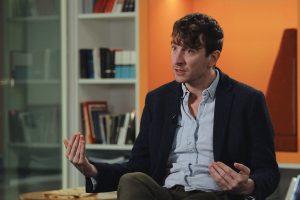Liberal Arts Education
Daniel Kontowski on the idea of liberal education, its learning outcomes and the consumerist approach to educa...
Does going to school increase your intelligence? Or is mental ability totally deternimed by genes? Diker-Tishman Professor of Sociology at Harvard University Christopher Winship speaks on parallels between intellectual development and athletic and musical training.
There has been a long term debate about whether going to school makes you smarter or whether differences in how smart people are basically determined by one’s genetics, something that ones inherit, so that how smart you are if more or less determined at birth. This question became one of an enormous national interest with the publication of a book by Richard Herrnstein and Charles Murray called “The Bell Curve”, in which they argued that one’s inherent genes were far, far more important than one’s family or the environment more generally, and success in life, and that the principal explanation for this was that people’s mental intelligence, what we often call IQ, intelligence quotient, is something that is fixed throughout life.
I may give a parallel analogy — imagine being a concert violinist. Again, there’re huge fixed differences in people’s basic music ability. Many of us no matter how long we ever practiced the violin would never end up at the Boston Symphony – one of the world’s best. On the other hand, as many parents, including myself, will tell you, anybody who picks up a violin and starts to try to play it, there are many, many weeks before you hear anything that sounds reasonably like music, right? You’re holding your ears for quite, quite some time. But then if you do talk to a concert violinist, they will also tell you that it’s very important that they practice every day, because if they go weeks or months without practicing, they do a lot worse.
Of course, education is not a singular thing. So it also would be very useful to look at types of education: is it a more applied education, say, going to business school, versus a liberal arts education, do those have different kinds of effects? And questions about whether different schools or different methods of education end up having different effects on mental ability. So we’ve really started with this one very basic debate about whether education – you learn anything at all, does it make you smarter – to really that there should be a much more detailed, finer set of questions of what kinds of education might or might not affect what kinds of mental abilities. Those are questions that need to be answered.

Daniel Kontowski on the idea of liberal education, its learning outcomes and the consumerist approach to educa...

Robert Plomin on IQ tests, genetic predispositions to higher or lower intelligence, and the Flynn Effect

Historian Peter Jones on Peter Abelard, logical analysis of the Scripture and what was the role of the univers...